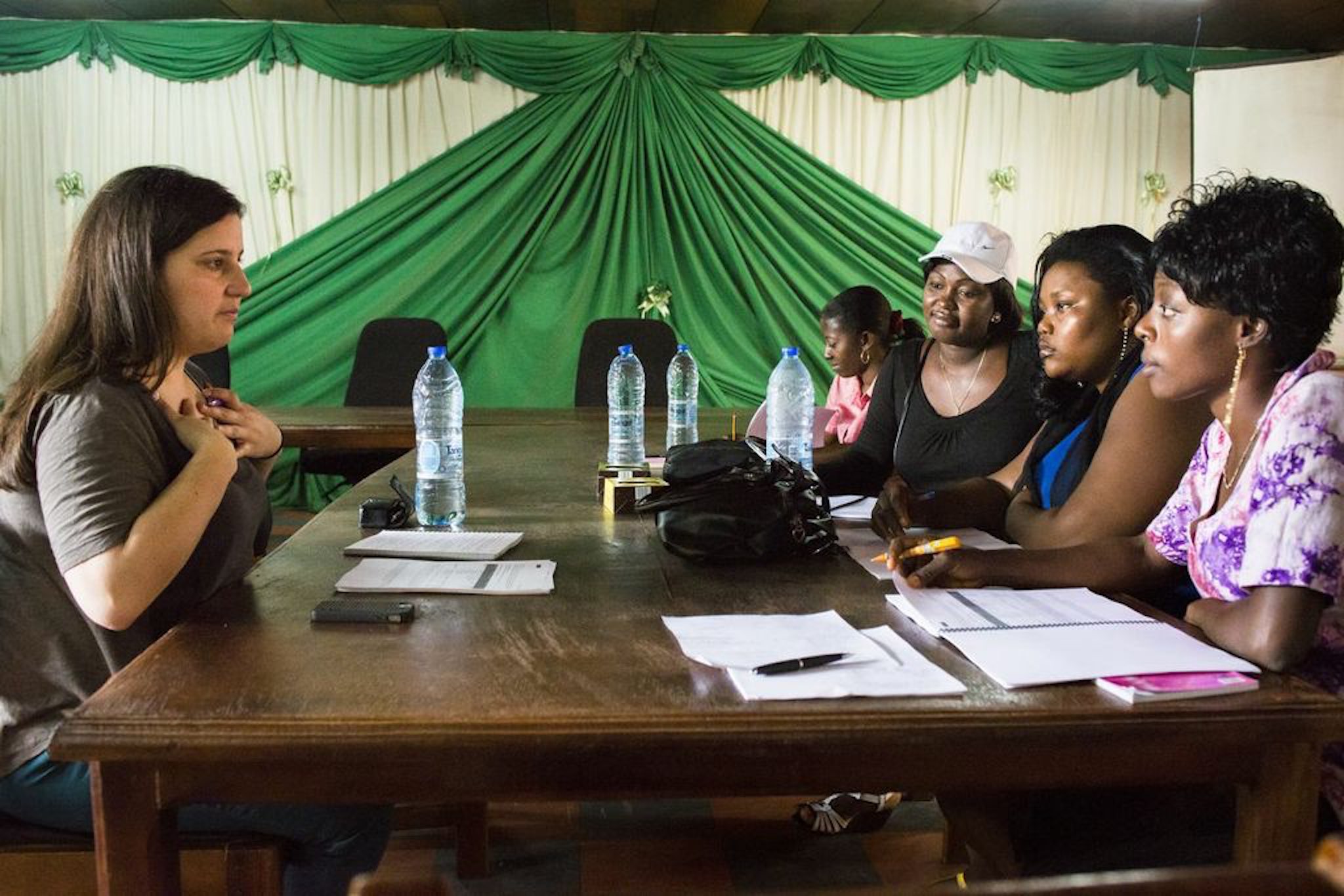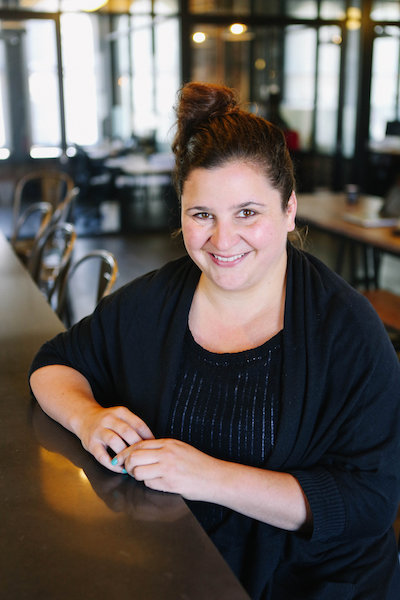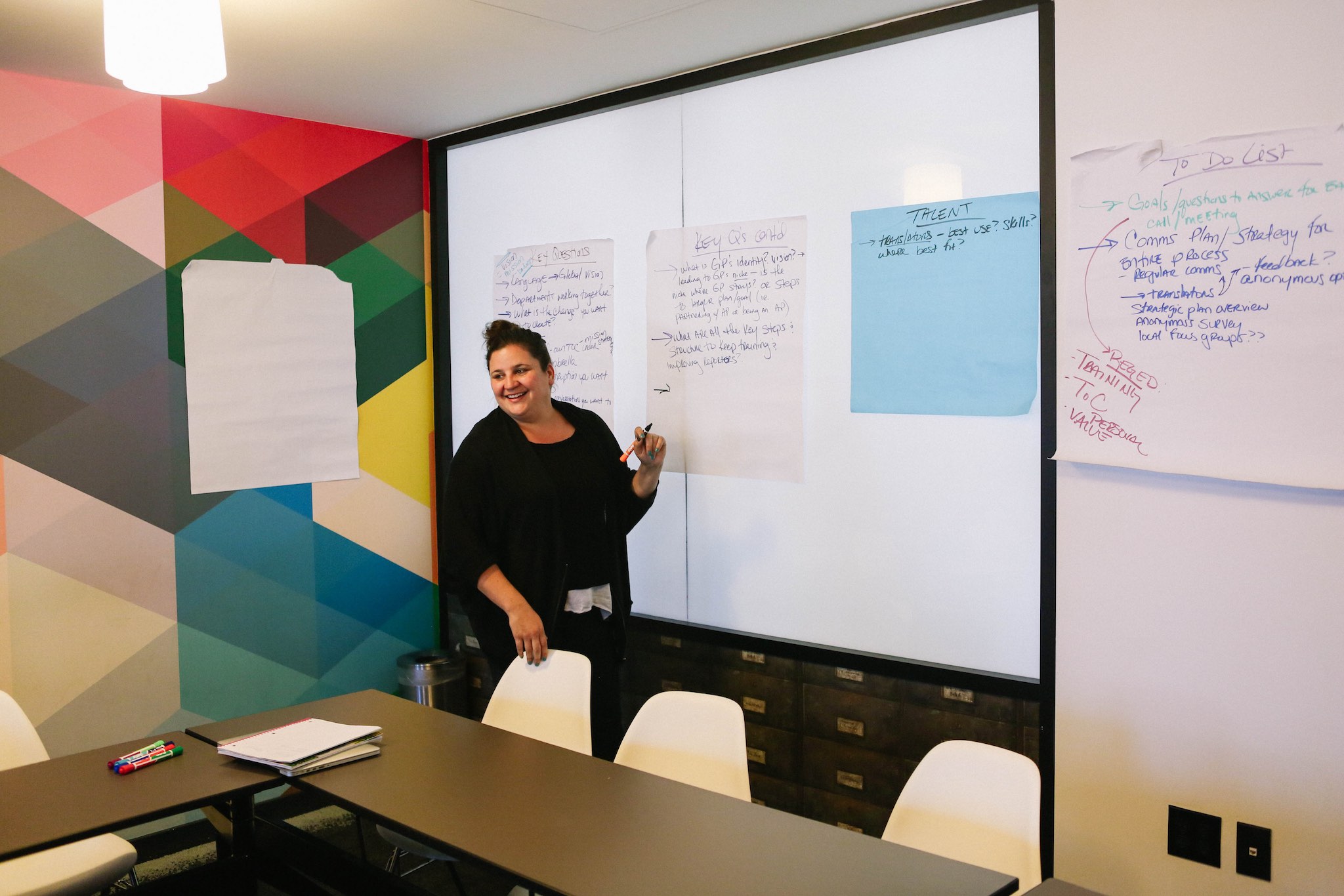Cristi Hegranes has plenty of reasons to celebrate. This year, the nonprofit organization she founded, the Global Press Institute, marks its 10th anniversary. It’s been winning numerous awards, including a $1.25 million grant from the prestigious MacArthur Foundation.
“It’s an exciting moment,” says Hegranes, who is dedicated to training female journalists. “It really marks our organization’s transition from adolescence to maturity.”
But Hegranes, based at San Francisco’s WeWork Golden Gate, is not the type to rest on her laurels. She’s used the opportunity to organize a San Francisco gallery show of photos from Global Press Institute journalists located around the world, including Mexico, Nepal, and the Democratic Republic of Congo.
She also gathered her staff from around the world for the first time. That means regional editors arriving in Washington, D.C. from as far away as Colombo, Sri Lanka and Nairobi, Kenya. These people had worked together for years, but finally they were in the same room.

That’s a lot, right? But Hegranes and her staff are also putting together a strategic plan for 2020. Getting a huge grant is great, but they want to ensure that their mission—empowering women journalists—can continue.
Hegranes, a journalist whose jobs have included serving as a foreign correspondent in Nepal, founded the Global Press Institute when she was 25. Her goal was to provide education and training for women so they can become journalists in their own countries.
“When we started 10 years ago, the world said you couldn’t take women with no prior experience and turn them into investigative reporters,” says Hegranes. “We’ve demonstrated thousands of time that that’s exactly what we can do.”
The Global Press Institute is the training arm of the organization. More than 165 women from 26 countries have been trained to become journalists. Because many of the women only have a primary or secondary school education, all of them go at their own pace. That means the training takes anywhere from six months to three years.

“We can take women anywhere in the world from a variety of educational and economic backgrounds and turn them into ethical and independent journalists,” says Hegranes.
All the graduates of the training program are offered jobs at the Global Press Journal, the online publication. Their work is syndicated through the Global Press News Service. The women are paid to report from their own countries, writing about issues that go unreported in the mainstream press or the state-sponsored media.
As a success story, Hegranes proudly points to Merveille Kavira Luneghe, a reporter from the Democratic Republic of Congo.
“She’s literally the only journalist in the territory,” says Hegranes. “The stories she is telling are dramatic, important, and really make a difference.”
She has reported about how kidnappings have become shockingly common is the province of North Kivu, and about how one local woman with a genetic condition that leaves her body unable to produce pigment beat discrimination by brewing an exceptional beer.
Hegranes says that safety is a big concern, since many of the women report from dangerous areas. The staff checks in with all reporters regularly, making sure they are safe.

Hegranes says that for Luneghe, the fact that she has become well known for her work helps keep her secure.
“She tells me her biggest complaint is that she’s too famous,” says Hegranes. “Her phone never stops ringing.”
As GPI moves forward after 10 years, one of the things Hegranes is most proud of is putting female journalists to work.
“We do crazy things like pay all our journalists a really good living wage, health insurance, and travel stipends,” says Hegranes. “Our aim is to make sure all our people are well compensated. It’s a really rare thing, especially when you’re employing women in the developing world.”
Photos: Sarah Gerber




